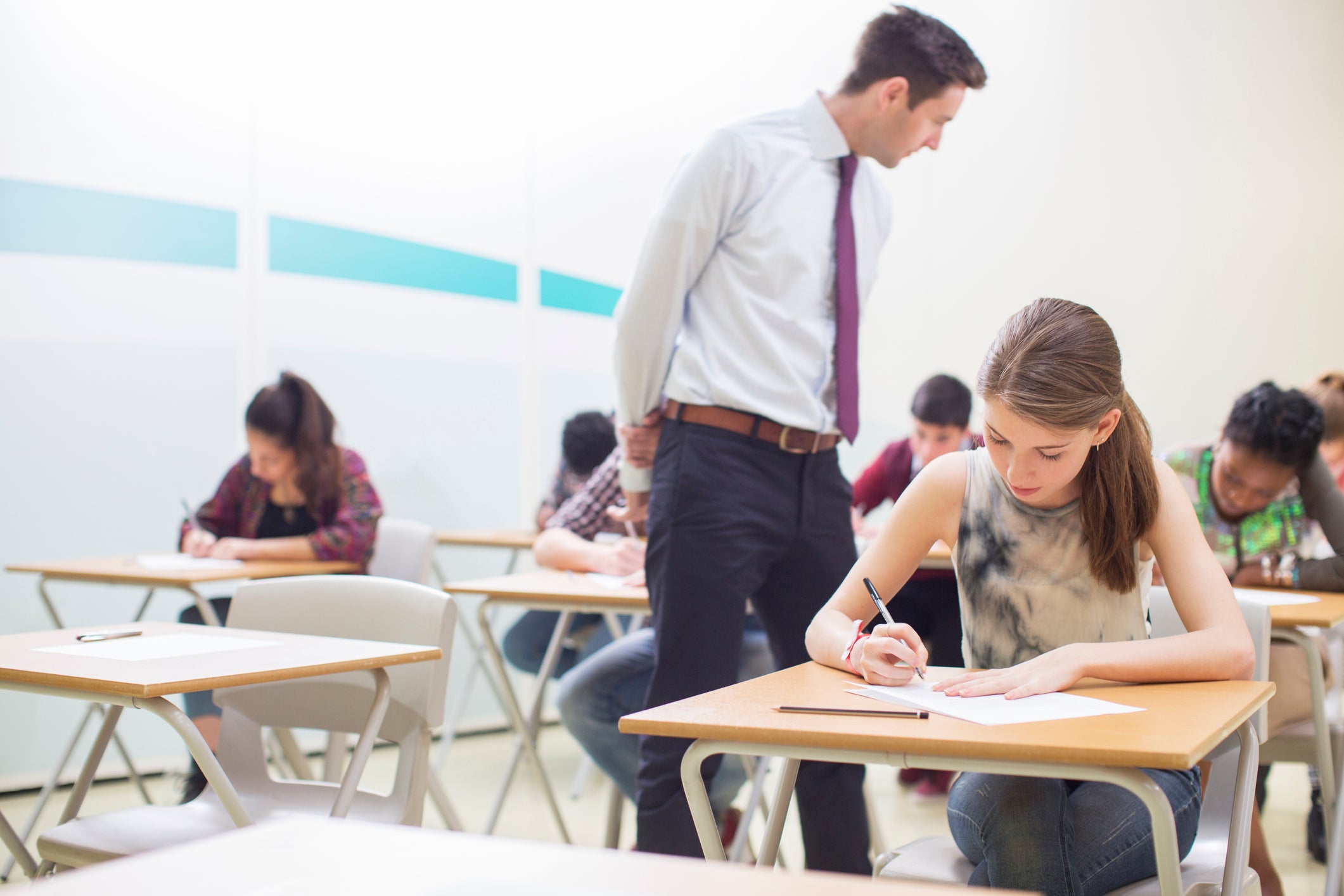Gap between poorer students and classmates ‘grows by largest amont on record’
Much of the progress towards closing this divide was wiped out last year, Education Policy Institute says

Poorer pupils fell behind their peers last year by the largest degree on record, a think tank has found, as the Covid pandemic disrupted efforts to create a more equal playing field.
The long-standing attainment gap between disadvantaged pupils and better-off classmates saw a bigger increase in 2021 than any other year in the past decade, the Education Policy Institute (EPI) found.
It said much of the progress towards closing this divide was wiped out last year.
Labour said the research was “resounding evidence” the government was failing children, while a union said it exposed “deep-rooted inequalities” within education.
Have you been affected by this story? Please contact zoe.tidman@independent.co.uk
The Independent’s Feed the Future campaign has been calling on the government to make more children eligible for free school meals, with an estimated 800,000 in poverty exempt from the scheme.
The EPI analysed official results data to look at the attainment gap - which sees poorer pupils typically do worse in school that better-off peers - last year and compared it with previous ones.
It found in Key Stage 4, which covers GCSEs, the divide grew by the largest annual amount compared to the rest of the last decade since comparable data became available.
The attainment gap got worse despite GCSE grades being assessed by teachers rather than exams, a measure brought in to reflect different levels of disruption during the Covid pandemic.
The EPI found no increase in the Key Stage 4 disadvantage gap in 2020. The think tank said this could either reflect the full impact of school closures catching up on pupils last year or different grading approaches identifying more lost learning. A different format - where schools estimated what pupils would get in an exam - was used in 2020.
It said the attainment gap for older pupils aged 16 to 19 widened in both 2020 and 2021, and significantly so last year. The divide had been relatively stable over the two years before that, the think tank added.
David Laws, a former schools minister who now chairs the EPI, said the research revealed a “very troubling picture”.
He said: “The learning losses during the pandemic appear to have reversed much of the progress in closing the disadvantage gap between poor children and the rest of the last decade.”
The former Lib Dem MP said the research showed the government needed to do more to help schools to reduce learning losses, especially those in poorer areas with large numbers of disadvantaged students.
Meanwhile Stephen Morgan, the shadow education secretary, said it was “resounding evidence that this Conservative government is abjectly failing our children”.
“This scandalous widening of the attainment gap between the most disadvantaged and more affluent is a direct result of a decade of Conservative neglect of our schools and a result of the Conservatives crashing our economy,” he said.
Julie McCulloch from the Association of School and College Leaders said: “This comprehensive report illustrates the deep-rooted inequalities within the English education system and our society as a whole.
“The impact of the pandemic has been particularly keenly felt by children and young people from disadvantaged backgrounds, who were less likely to have access to the devices and quiet spaces that aid remote learning.”
She said schools do everything they can to help these pupils, but cannot solve this inequality by themselves. “Significant investment is required to close the disadvantage gap and create a system without such a close alignment between family income and educational attainment,” she said.
Last month, another report found poorer students were lagging behind their peers at the same rate as they were a decade ago - including in key subjects in primary schools, as well as GCSE.
A Department of Education spokesperson said: “The pandemic had a significant impact on children’s learning. To catch up we introduced our education recovery programme, with over 2 million high-quality tutoring courses started.
“We are also supporting the most disadvantaged and vulnerable pupils through pupil premium funding, which is increasing to more than £2.6bn in 2022/23 and is the highest cash terms rate since this funding began.
“More broadly, we are investing an extra £2bn into our schools next year and the year after. This will be the highest real terms spending on schools in history totalling £58.8bn by 2024/25.”
Subscribe to Independent Premium to bookmark this article
Want to bookmark your favourite articles and stories to read or reference later? Start your Independent Premium subscription today.

Join our commenting forum
Join thought-provoking conversations, follow other Independent readers and see their replies